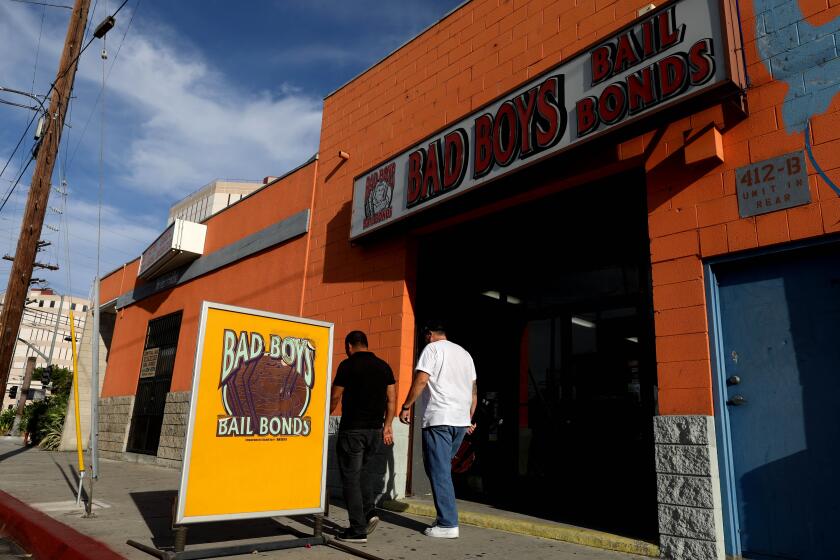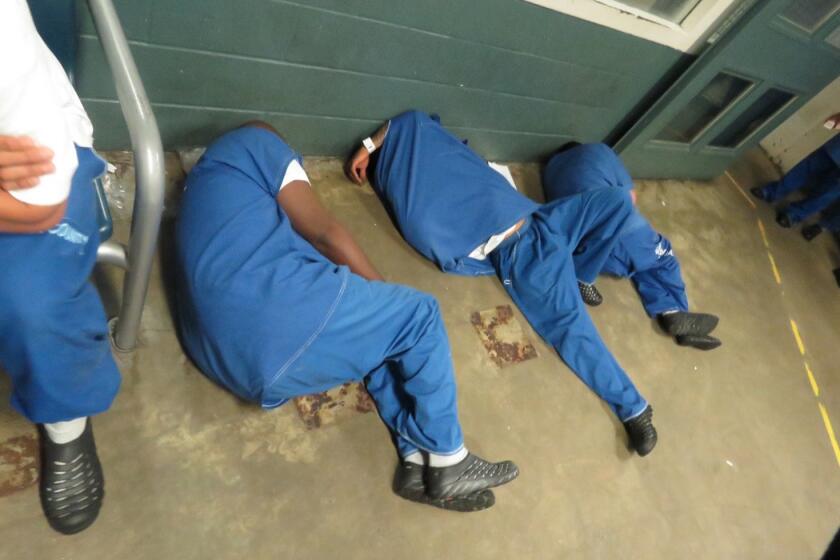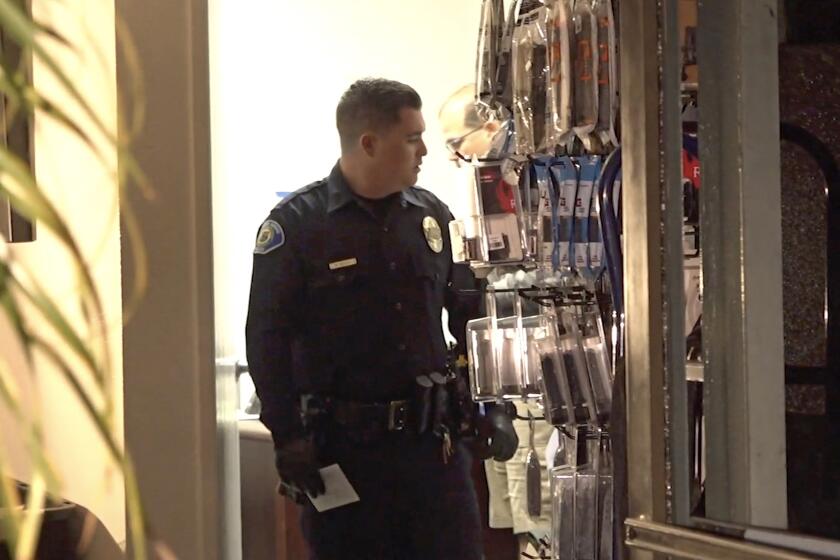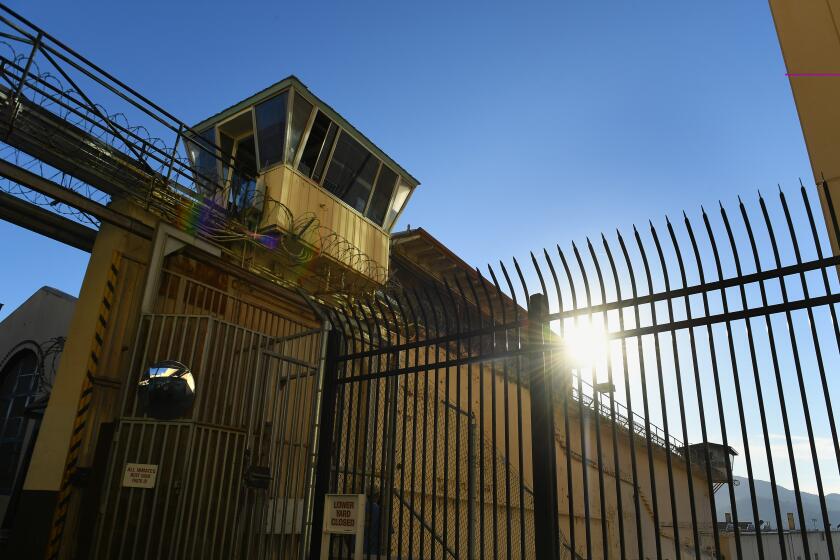Editorial: 50 Cent and prosecutors are wrong about cash bail. L.A. courts get it right
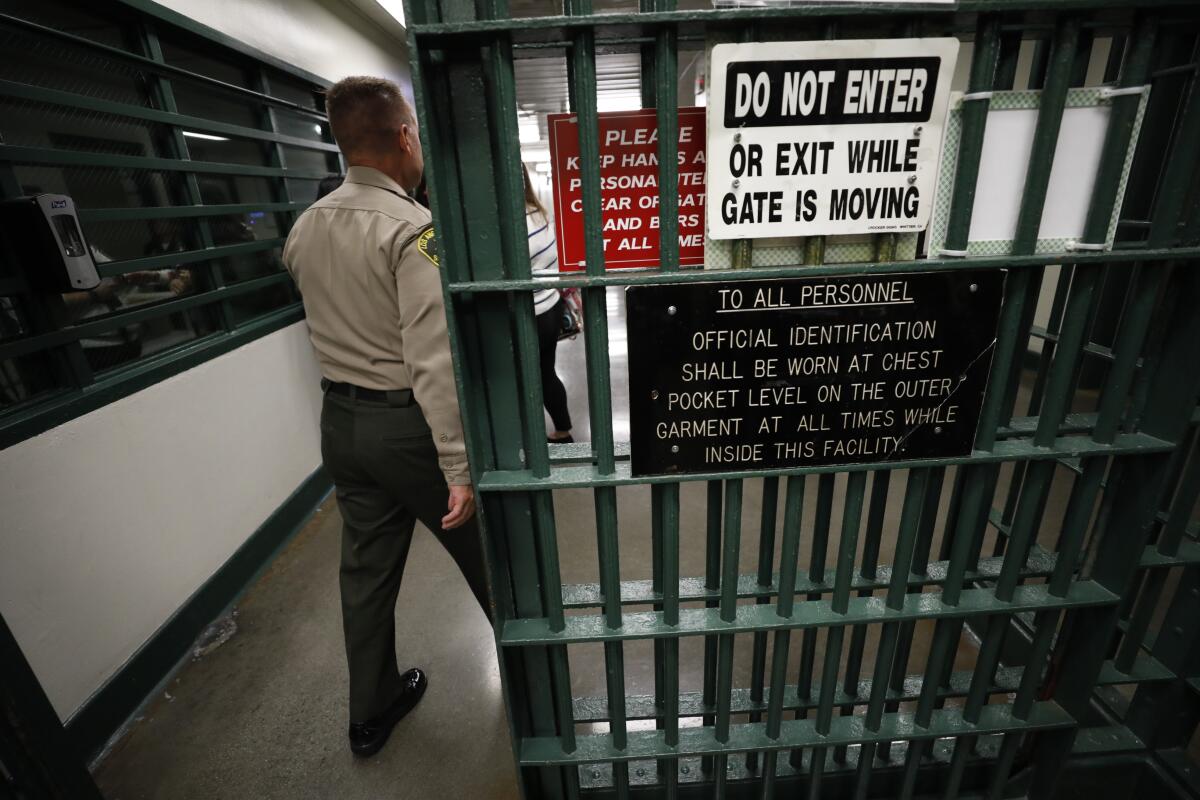
Los Angeles has been suffering from a summer storm of politically motivated falsehoods as well as irresponsible social and traditional media claims about money bail and the status of accused offenders between arrest and trial.
An important and welcome development this week should cut through the nonsense. The Los Angeles Superior Court unveiled a new protocol that will eliminate money bail for a majority of people arrested in L.A. County, beginning in October.
People arrested for most misdemeanors and nonviolent felonies will be cited by police in the field or brought to the station, booked and released, on a promise to appear in court.
L.A. officials knew the bail schedules they used to lock people up before trial were unjust, but they didn’t act. Now a ruling will force them to do so.
For higher levels of crime, the accused will be held at the station (for an average of about four hours, the court said) while a magistrate — a Los Angeles Superior Court judge or commissioner — makes an assessment of the person’s likelihood to endanger the public if released or fail to show up for court. After reviewing the accused’s criminal record, if any, the magistrate will set conditions for release, or order the suspect to be held pending arraignment.
And for the most serious felonies like murder and rape, bail will apply as it does now. If a judge grants bail at arraignment, people who have the money to post bail will be released. People who don’t, won’t.
The new program may be confusing to many L.A. County residents who haven’t had direct experience with the criminal justice system. We’ve all seen “police procedural” dramas in which an arrested person is immediately brought before a judge, who sets bail or orders jail. These TV judges hold court at all hours, day and night.
That’s not how it works in Los Angeles. At least, not until the last several years as the Superior Court has rolled out a limited magistrate review program. In some jurisdictions (New York, for example) where there are night courts, people being charged with a crime appear before a judge for arraignment often within 24 hours of arrest.
By contrast, in most of California, a person who can’t pay bail at the police station will be sent to jail for three days or sometimes as long as a week before finally appearing before a judge. Then the judge can set bail a second time at an arraignment hearing where prosecutors and defense lawyers can argue the merits of pretrial release. The Superior Court’s new protocol deals with the period before arraignment.
Currently, an accused person without money for bail might lose a job, housing (for failure to pay rent) or child custody (for failure to be at home); they could suffer all kinds of other consequences while sitting in jail for days, waiting for arraignment.
This doesn’t happen to people with money, who can pay their ransom and get out right away. It should be immediately obvious that decisions of liberty should not be based on ability to pay. That’s an essential principle defining our creed of equal justice under law.
California judges are circumventing a landmark constitutional ruling meant to stop the misuse of money bail. And it gets worse.
In terms of public safety, pretrial release without bail is actually beneficial. There is in fact a solid body of evidence from numerous peer-reviewed academic studies showing that keeping low-risk people in jail before arraignment or trial increases danger to the public — probably because it destabilizes the lives of the accused and makes them more desperate and more likely to break the law after they finally are released.
This compelling evidence led to a May order in the case of Urquidi vs. Los Angeles, in which using money bail before arraignment was declared unconstitutional (and dangerous), and the court’s pandemic-era $0 bail schedule was reinstated. The defendants in that case — the city and county of Los Angeles — were invited to introduce evidence to the contrary. They had nothing.
The ruling inspired an Instagram post earlier this month by rapper 50 Cent: “LA is finished watch how bad it gets out there. SMH [social media shorthand for ‘shaking my head’].”
Political cowardice has given us a half-century of increasingly inhuman incarceration conditions and has diminished safety both inside and outside Los Angeles County jails.
The problem was not so much his clueless post; it was that so many people in and out of law enforcement would take him seriously as an authority on bail policy and promote that idea.
Police and prosecutors glommed onto his post as if it were gospel. News outlets that have never bothered to report the clear data on public safety and pretrial release offered breathless coverage of 50 Cent’s pronouncement.
Expect fact-free, fear-mongering statements from law enforcement and especially the bail bond industry to increase as the Oct. 1 start date approaches for the new pretrial release protocol. It’s likely to get even worse as the 2024 primaries approach.
Debunked tropes about California’s justice reforms supposedly causing crime keep coming up. They were false when crime was dropping, and they’re just as false now.
Los Angeles Superior Court judges, many of whom are former prosecutors, are not known as risk-takers or reckless experimenters. To the contrary, they’re a fairly conservative bunch who are skeptical of innovation. But their business is justice, and they have a steely eye on public safety. They have been working on the magistrate system and the new bail protocol, and have run a scaled-down version for several years. They appear satisfied that the Constitution, and public safety, require this step.
As for the rappers, prosecutors and others who refuse to follow the data that leads to better public safety, and who want to keep using wealth and poverty rather than risk to determine who goes free before trial and who stays locked up, well — SMH.
More to Read
A cure for the common opinion
Get thought-provoking perspectives with our weekly newsletter.
You may occasionally receive promotional content from the Los Angeles Times.

